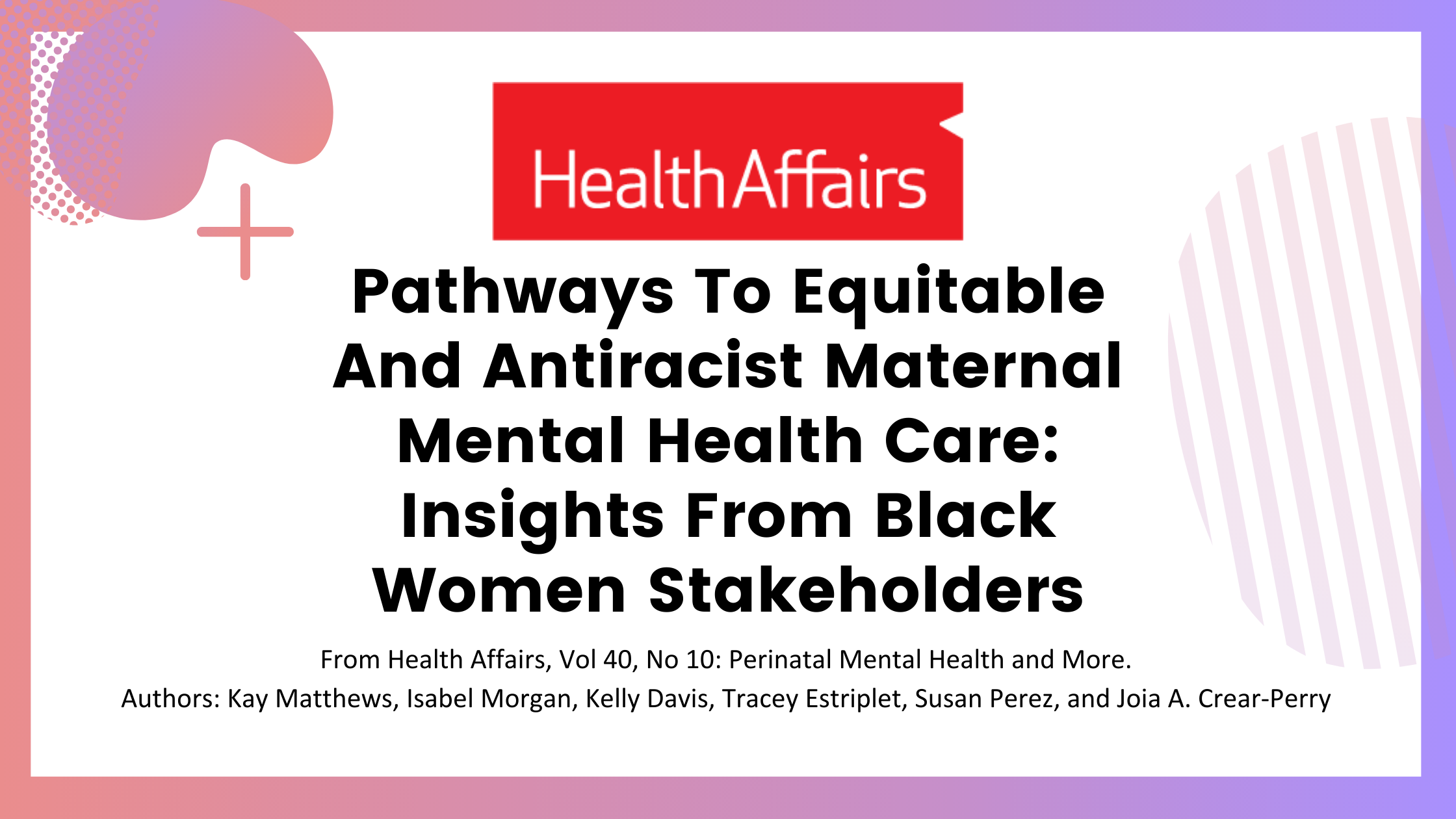
From Health Affairs, Vol 40, No 10: Perinatal Mental Health and More.
Authors: Kay Matthews, Isabel Morgan, Kelly Davis, Tracey Estriplet, Susan Perez, and Joia A. Crear-Perry
Structural racism causes significant inequities in the diagnosis of perinatal and maternal mental health disorders and access to perinatal and maternal mental health treatment. Black birthing populations are particularly burdened by disjointed systems of care for mental health. To identify strategies to address racism and inequities in maternal and infant mental health care, we interviewed ten Black women who support Black birthing people, including mental health practitioners, researchers, and activists, in February 2021. The five key pathways to address racism and inequities that we identified from the stakeholder interviews are educating and training practitioners; investing in the Black women mental health workforce; investing in Black women–led community-based organizations; valuing, honoring, and investing in community and traditional healing practices; and promoting integrated care and shared decision making. These pathways highlight critical resources needed to improve the quality of maternal mental health care for Black birthing populations.
Black women experience a higher prevalence of maternal mental health conditions, particularly postpartum depression and anxiety, relative to the US population as a whole. In addition, maternal mental health issues among Black women are largely underreported, and symptoms often go unaddressed. Structural and social determinants are increasingly recognized as contributing factors to mental health; social and economic disasters exacerbate inequities in mental health outcomes and well-being and have implications for pregnant and postpartum populations. Identifying racism, sexism, classism, and other systems of oppression shifts the narrative of blame from individual-level behaviors and focuses interventions at the systems level. This increased recognition and acknowledgment has spurred advocacy for upstream interventions that address the root causes of mental illnesses. Black birthing people encounter societal and system barriers when seeking and receiving health and social support services. Lack of universal mental health education and screening, particularly during pregnancy, creates missed opportunities to counsel patients on symptoms and management of depression, anxiety, and other mental health disorders and to inform them about resources available to them in clinical care and community settings. In addition, limited community resources and structured-referral provider networks lead to higher rates of inpatient hospital-based care, as opposed to care in community-based settings, for Black birthing populations.
The perspectives and experiences of Black birthing people in maternal mental health research are key to identifying practice and treatment solutions. To improve the understanding of the impacts of structural and social determinants of health on Black birthing populations’ mental health and mental health care experiences and to identify specific pathways and strategies that could advance equitable and antiracist maternal and infant mental health care, we conducted semistructured interviews with Black women who are maternal and infant mental health stakeholders. This article presents strategies for improving maternal mental health. Subsequent reports will focus on analysis of data related to infant mental health.